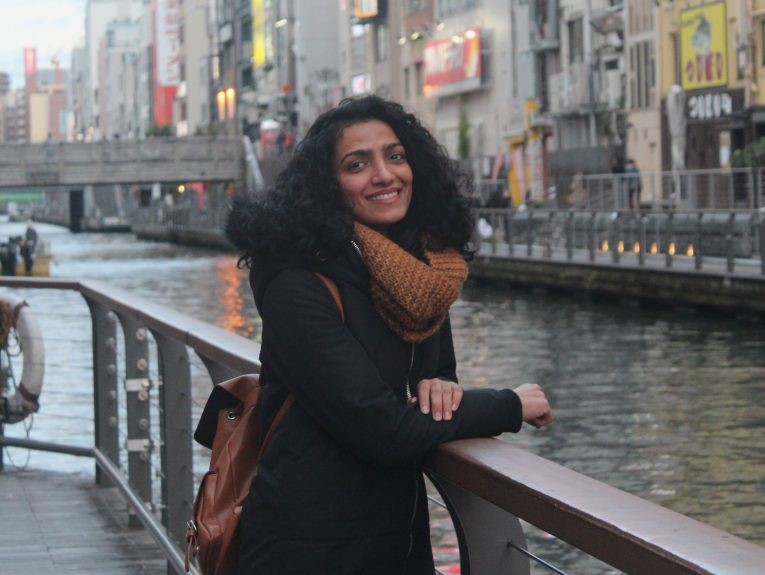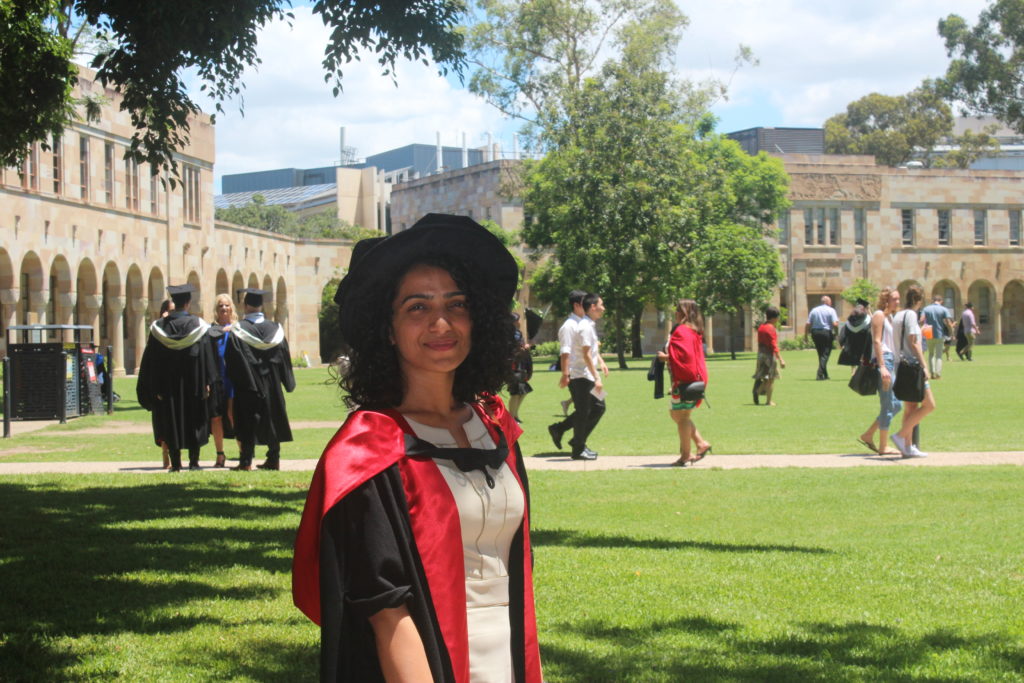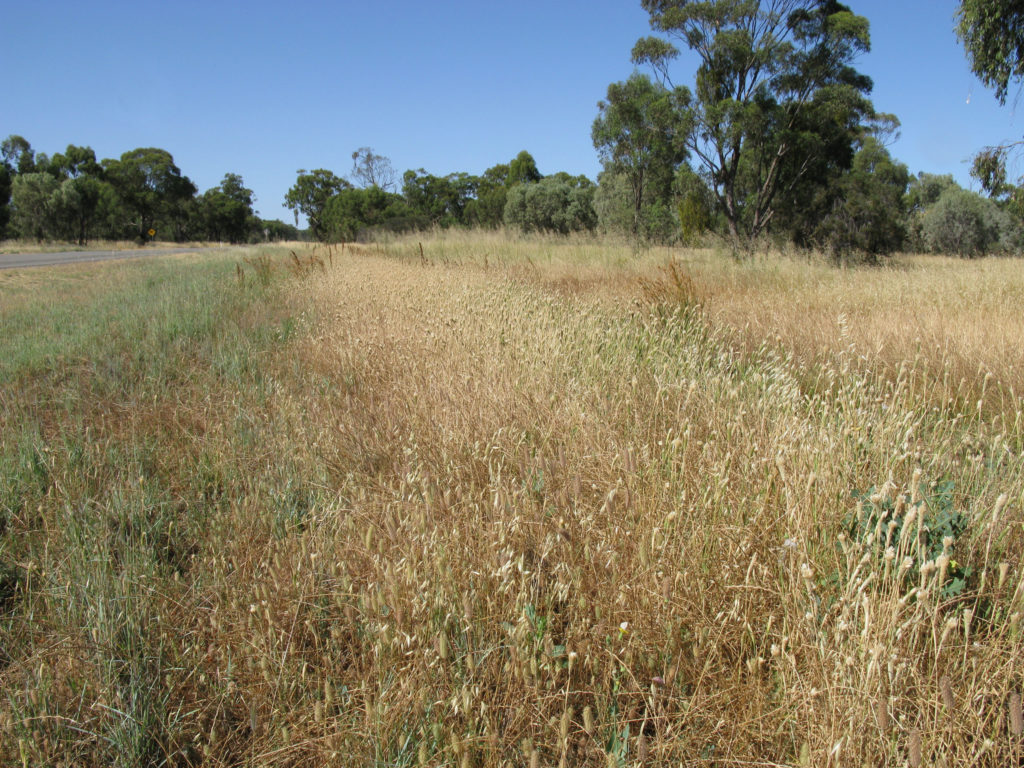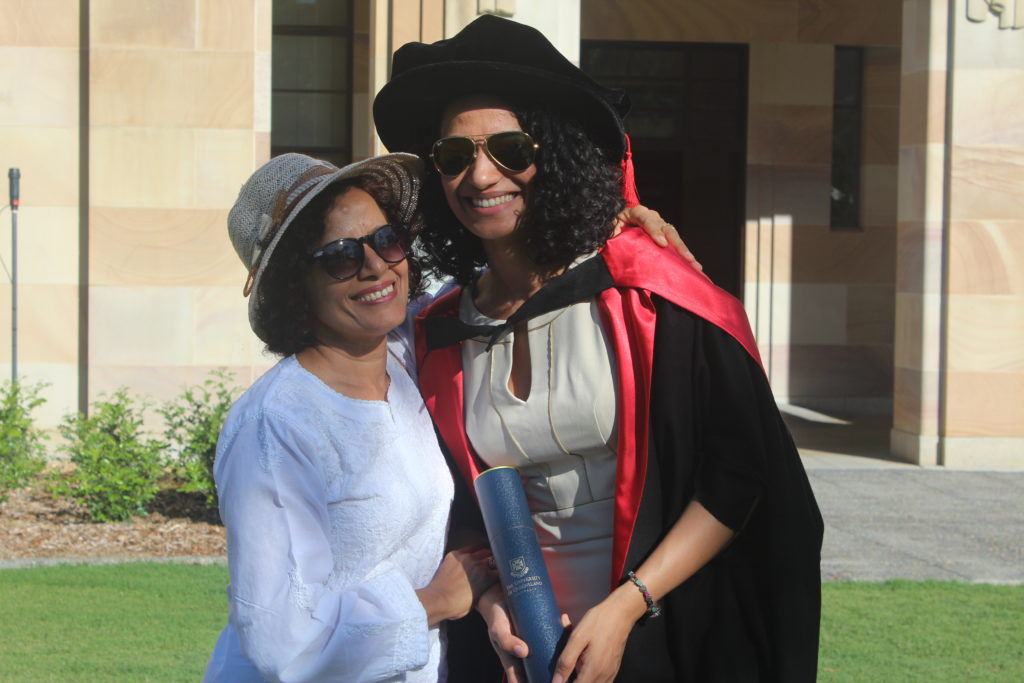You can find inspiration in the strangest places. You overhear a conversation on a train and it gets you thinking. You watch a movie, and a cheesy line from a b-grade celebrity brings you to tears. Heck, even a carefully-crafted insurance ad can prompt you to rethink major life decisions.
And sometimes, you find inspiration much closer to home. When Dr Anu Choudhary received the Queensland Women in STEM Prize last week, it suddenly struck her that her greatest inspiration, her biggest mentor, is her science-loving mother.
Anu Choudhary is a molecular biologist in our Brisbane lab. She’s researching ground-breaking ways to weed out weeds, without having to use herbicides. Her love of science is many generations deep. In fact, some might say that studying genes is … well … in her genes.

Anu Choudhary, a molecular biologist with CSIRO, recently won a Queensland Women in STEM Prize.
Can you inherit a love of science?
It’s the 1970s, and Anu’s grandfather is a Operation Theatre attendant at the hospital in his remote Indian village. Anu’s mother, a young girl at the time, is always following her father around the hospital. She’s fascinated by medicine and the people her father meets. She wants to be a doctor. But, in a few years time, when it comes to choosing her senior subjects, she’s crestfallen. Biology—her favourite class—isn’t offered at her village. It’s taught at a neighbouring village, but she can’t travel alone because she’s a girl. Anu’s mum ends up taking languages and arts, but her passion for science never wanes.
“It’s going to sound cheesy,” says Anu, “But I think my mum has been a big influence on how things have turned out in my life.”
“While we were still kids, living in Delhi, my mum was finishing her PhD with three kids in tow. I don’t know how she managed that, but she did. In Delhi, where I grew up, it was possible for me to study biology. Mum really wanted to be a doctor, so she motivated us to do science. It was her who got my sister [a scientist in Canada] and I into science. Fortunately enough, I enjoyed biology. I killed biology—it was my favourite subject.”
“It’s so subconscious that I didn’t realise until much later, that it’s my mum who motivated me. And I don’t think she knew how much we’d be influenced by hearing about her experience.” Anu adds, laughing, “It makes me realise I have to be careful about what I say!”
“I was meant to get into science … I ask a lot of questions!”

Anu Choudhary graduated with a PhD in genomics and molecular biology. She’s now working on agricultural weeds in our Brisbane lab.
Once, a girl asked Anu how to choose a speciality in science. Anu said, “I gave her the answer from my life: you just have to try things. Don’t write things off too early. I’m the sort of person who would try something, and know straight away if I want to do it again or not.”
For this reason, Anu has had a varied, incredibly interesting research career. “I’ve been able to dip my toes into so many fields. I started with an Honours in microbiology, then a Masters in genetics, and a PhD in genomics and molecular biology. Then I went into animal vaccines, and now I work in the plant side of things. For me, the best type of science happens at the intersection of disciplines.”
Anu moved to Australia to start a PhD at the University of Queensland, finishing in 2015. For her, it was “one of the best times”. “It was a big lab with people from every corner of the world, it was really multicultural. As my first time out of India, it was eye-opening in so many ways,” Anu explains.
During her PhD, Anu studied micro-RNA and the non-coding regions of the human genome. Her team was surprised to find a lot of information in RNA that people didn’t know about, just because RNA “is dismissed as junk”. Her PhD was commended with the Dean’s Award. After working on a fascinating project, and having such a good time in the lab, this award was “the cherry on top”.
When it came to job searching, Anu found a role as Postdoctoral Fellow in vaccine research, based at our Australian Animal Health Laboratory (AAHL) in Geelong. “I was looking for a deeper meaning to my work: more than a paper published. I wanted a job where I knew that someone would benefit from my work,” Anu said.
After a few years studying animal vaccines, she returned to Brisbane in 2018 to begin her—drumroll please!—award-winning weed work.
How do you make weeds less ‘weedy’?

Anu Choudhary’s research hopes to target crop weeds like paradoxa grass (Phalaris paradoxa), that’s a pest in crops, rotation crops and pastures in Australia.
Weeds costs Queensland alone a staggering $600 million annually. And each year, across Australia, weeds destroy enough food to almost feed 3 million people. That’s a lot of lost food, in an ever-growing, ever-hungry world.
So Anu is trying to make weeds less … weedy. She does this by using gene-editing technology. Anu uses fast and precise genetic tools that awaken the sleeping bit of a weed’s DNA, called domestication genes.
A weed like paradoxa grass, for instance, can shed thousands of seeds in Autumn, and this reduces crop yield by 40 per cent. Anu’s goal is to switch off this ‘seed-shedding gene’ so that the seeds stay firmly attached to the weed, leaving the weeds to be harvested and destroyed.
Why hasn’t this been done before? Anu explains that “there’s a lot of knowledge about how to manipulate animal genes—you think of any animal, and most of their genomes have been sequenced. But it’s almost like people have forgotten plants, especially weeds, in molecular biology. At the moment, we think that the only way of controlling pests are herbicides and biological controls (both of which have their positives and negatives). I feel like there is this space for genetic technology to come in, and for us to look at what is possible. I’m not a plant expert, but my background in genetic technology allows me to see the gaps, and how I can contribute.”
For Anu, “technologies like this could not only save our farmers money, but also help Queensland lead the way in sustainably feeding the world.”
Shining a light on Queensland’s brightest women in STEM

The 2019 Queensland Women in STEM winners: Amanda Dawson, Anu Choudhary, and Clare Villalba (Clare’s parents accepted the award on her behalf)
Last weekend, Anu won one of three 2019 Queensland Women in STEM Prizes. (STEM stands for science, technology, engineering and mathematics.)
What does the award mean to her? “It’s very grounding. Being given the opportunity to be in a position where you can influence so many people, potentially, with your work and your ideas. And people are willing to listen. I hope it happens another time in my life, but it almost feels like a once-in-a-lifetime opportunity. I want to get out there and do things. I want to make it worth their while, that they’ve chosen someone who really feels passionately about the things she’s talking about.”
There were girls from three schools at the award ceremony. “It was really cool,” says Anu, “Because the girls were interested in the challenges that you face in research, and that’s something I wish I had growing up: the opportunity to interact with the people who you are thinking of becoming. Because it’s not all rosy. I wish I had the chance to ask what it’s like: what are the drawbacks, what are the challenges?”
It was a hot day in Brisbane, when Anu received her award. “That these girls came out in their uniforms to listen, to be there on a Sunday, a really hot Sunday, was extremely flattering. It was a privilege to share my thoughts with them. It was very humbling. To be honest, I was on such a high, and so exhausted by the heat that I nearly passed out!”
What does her mum think about the award? “My mum’s really proud. I’m surprised actually, I hadn’t thought about connecting my mum to this prize. I’m going to go home and tell her that. But she’ll be surprised and say ‘Oh, no, you did this yourself!’.”

Anu Choudhary and her mum, Kamlesh, at her PhD graduation, at the University of Queensland in Brisbane.
Inspiring the next generation of female scientists
When Anu’s not silencing genes, she’s sharing stories about science and the wonderful world of STEM. She has run science workshops for kids at low socio-economic schools in regional Australia. She started the Pint of Science events in Canberra. And she’s especially proud to be an ambassador for women and girls in STEM.
“We can all do something to address the gender gap in STEM. Perhaps we can start by rethinking our narrative. So instead of just asking “how do we get girls to be interested in STEM”, we can start by asking, “how can STEM be applied to the problems that are appealing to girls?” Personally, it’s really important for me to see that my work has a clear societal impact. I need to know that I’m helping someone. I don’t know if that’s true for all girls, but I know it’s driven me throughout my life.”
But Anu will need to hang up her lab coat for a little while. She’s going to be a mum in six week’s time. And she’s having a little girl. We wonder if she will inherit her family’s love of science.

